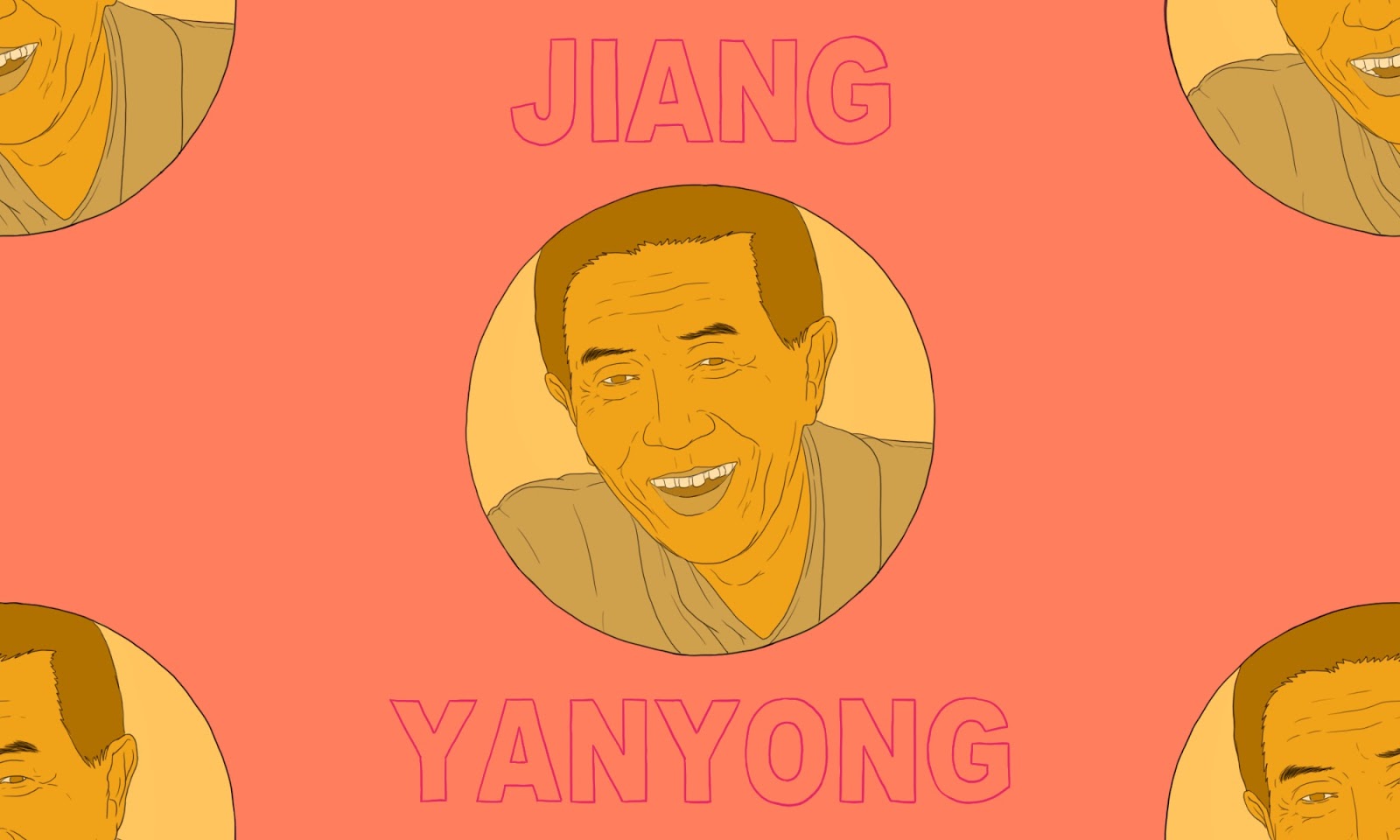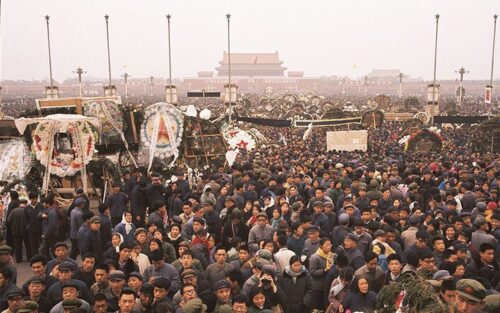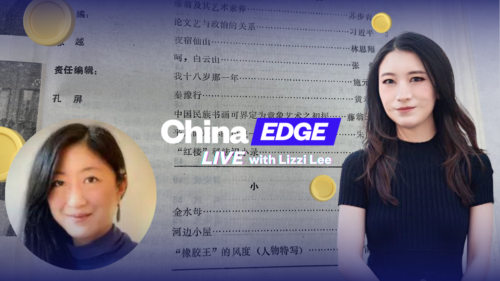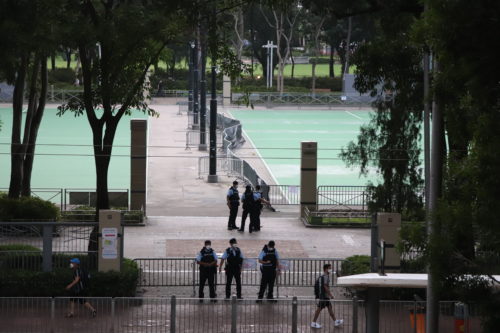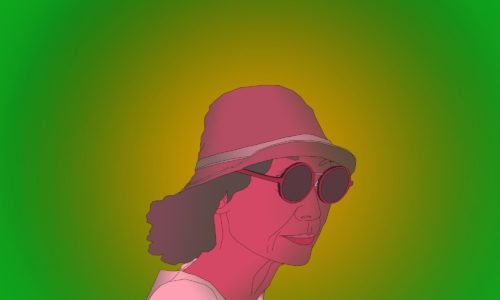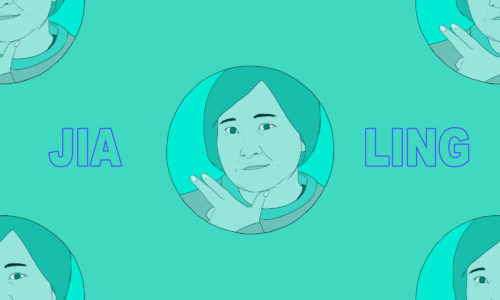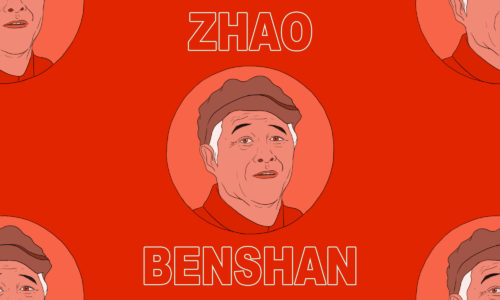At around 10 pm on June 3, 1989, Jiǎng Yànyǒng 蒋彦永, head surgeon at the 301 General Hospital in Beijing, heard gunshots to the north of the city. Minutes later he was in the emergency room staring at seven young people laid out on examining tables or on the floor, anywhere there was room, covered in blood. It was a very long night. Eighty-nine patients were admitted into the emergency room in the space of two hours, stretching the hospital to full capacity. Surgeons worked frantically to get through the dying backlog of blood-soaked bodies wheeled in on pull carts or pedicabs. But operations were complicated, organs and tissues shredded by silvery splinters from illegal fragmentation bullets. Lives were cut short, families torn apart. A mother pleaded on her knees for Jiang to save her son, only in his 20s, but he responded over and over in tears that he was already dead.
“My brain buzzed and I almost passed out,” he recalled 15 years later. “I had been a surgeon for more than 30 years….lying before me this time were our own people, killed by children of the Chinese people, with weapons given to them by the people.”
That we have Jiang’s memories of the Tiananmen Square Massacre is remarkable. Others who operated in 301 that night thought as Jiang did — it was brutal, tragic, a betrayal of the people. But they kept silent, knowing how dangerous it was to speak out. Jiang was brave enough to write to the government and seek redress. Three times.
Who is Jiang Yanyong?
A forgotten hero. The CCP has done many dubious things in the name of social stability, and then pretended they did nothing. Jiang Yanyong was brave enough to call them out — twice — despite being a Communist Party member. His campaign for the victims of 1989 foreshadowed his campaign for the victims of the SARS outbreak in 2003. Although Jiang was hailed as a hero in the aftermath of the epidemic, it is Zhōng Nánshān 钟南山 who is now officially celebrated as the man who defeated SARS by contradicting government misinformation. But Jiang Yanyong was far bolder with his criticism. Perhaps because of that, he’s now being sifted out of history.
Born in Hangzhou in 1931, Jiang enjoyed a wealthy and hedonistic upbringing, thanks to his grandfather founding Zhejiang Industrial Bank. But this carefree life was shattered when his aunt died of tuberculosis, a slow drawn-out death that left her wracked with fever and retching blood.
Her death resolved him to study medicine, first at Yenching University and then Peking Union Medical College. He joined the People’s Liberation Army (PLA) in 1954, and began working at the 301 General Hospital, one of several army hospitals in Beijing. He earned the nickname “Brave Jiang” for insisting on taking the most difficult cases.
His past came back to haunt him during the Cultural Revolution. Although he had treated victims of industrial accidents for the Army Railway Corps, he was denounced as a bourgeois capitalist. One of his cousins, being a bigwig in Taiwan’s Kuomintang government, didn’t help. He was thrown into prison for two and a half years, then packed off to remote Qinghai Province to work in military stables. But he stayed loyal to the Party, hoping it would learn from its mistakes and always work in the national interest.
SARS whistleblower
Naturally, Jiang was furious when top party officials began lying to the people in 2003. Although semi-retired at this point, Jiang heard about SARS when it infected an old friend already in the hospital with lung cancer. Upon making inquiries, he found more than 150 cases in Beijing’s military hospitals, ratcheting up by the day and infecting medical workers.
But on April 2, health minister Zhāng Wénkāng 张文康 went on CCTV to say there were only 12 cases in Beijing and that the government had the situation under control. The health ministry encouraged foreigners to keep traveling to China or doing business there. Zhang had trained as a physician. Jiang was convinced his lies “violated the professional ethics of a doctor,” according to an interview with Chinese media in 2013. Jiang knew SARS could infect the whole world.
Jiang decided to act, sending a letter with the figures he had collected to Chinese and foreign news outlets. He dared to sign his own name, for fear that no one would trust his information unless it was clearly from a trustworthy source. Jiang had become head surgeon at 301 General Hospital by 1987. This, and the rank of Major General, made him a prominent individual within the army, the Communist Party, and the health service. People would sit up if the news came from him.
The letter led to the World Health Organization (WHO) interviewing him and his recommendation to health officials that China’s health minister resign, with small hospitals being turned over to help fight the outbreak.
The former happened — Zhang was sacked along with the mayor of Beijing, with the WHO soon advising against all but essential travel to the city. A new diagnosis figure was given, 10 times the earlier number. By the April 17, new Secretary General Hú Jǐntāo 胡锦涛 declared no one must hide the virus, and work began swiftly to prevent and contain the disease.
No doubt Jiang’s intervention played a role in stopping SARS reaching pandemic proportions. He was a hero, with even state media lauding his brave intervention, telling the truth when many feared the consequences of doing so. He was on the cover of Sanlian Life Weekly (a state-owned response to TIME magazine), which predicted “this name will be remembered by more and more people in the history of China’s fight against SARS in 2003.”
Tiananmen
But Jiang scuppered his place in the Party’s history books by using his newfound influence to tackle Tiananmen.
After his frenzied work on June 3, 1989, Jiang had always insisted to colleagues that the massacre had been a grave mistake. He believed this was why he was never promoted any higher.
He was sacrificing so much, but Jiang believed the truth was always essential. Whether medical or political, it was “the most basic requirement for a doctor,” he told Southern People Weekly in 2013. “I have experienced numerous political movements for 50 years, I feel deeply that it is easy to lie, so I insist on never telling lies.”
In 1998, he wrote to the heads of government asking leaders to rename the student protests as a “patriotic movement” rather than a failed rebellion. It was ignored. In 2004 he wrote a lengthy missive, listing his memories in detail, saying citizens were murdered by leaders who “supported corruption” in an act of violence “unprecedented” in the world and in China. The government turning a deaf ear to demands for explanations was “irresponsible.” He sent copies to the Western media. He knew full well he was putting his neck in a noose, but he considered it his duty. Having a mouth but using it to tell lies meant it was only good for eating, its user a pointless, docile sponge.
The crackdown came quickly. He and his wife were arrested in June 2004, and Jiang forced to undergo “interrogations” and “intense indoctrination classes” for a month. But he sent a note to his family, promising to continue to seek “truth through facts.” He sent another letter to the government in 2009 asking them to apologize for how he had been treated.
They never did.
Retirement
Jiang led a quiet life, continuing to do the occasional bit of private practice, but always under close surveillance. He was barred from traveling abroad, and had to ask permission to attend social gatherings.
He hoped for change. In 2013, he told reporters he believed “now there is an environment for telling the truth” — in Xí Jìnpíng’s 习近平 China. Perhaps this was why he tried again. In 2019, the 30th anniversary of the massacre, he sent another letter to Xi Jinping, demanding justice for this “crime.” He was once again placed under house arrest, where he remains today, with no communication with the outside world.
His current condition is vague and sinister. He was sent to 301 for over a month at the start of his custody in April 2019, diagnosed with pneumonia. He was heavily guarded, his family barred from visiting. According to the Guardian, he “became agitated and was given medication, which led to severe memory loss.” His wife has told Western reporters: “His health is not good. He is not in a good mental state either.”
The fate of Jiang Yanyong is a reminder of the power of CCP propaganda to shape history. Zhong Nanshan is promoted by state media, the subject of numerous documentaries, biographies, and interviews. Social media buzzes with news of his selfless work at the start of COVID-19. He’s the correct example: the doctor who works for the people, contradicting the government but not condemning it, limiting criticism to medical improvements.
Jiang is nowhere in state media nowadays, but he’s mentioned on Weibo, his bravery in speaking out on SARS in the face of government threats compared to that of Dr. Lǐ Wénliàng 李文亮. Some point out the campaign to promote Zhong Nanshan, future generations plunged into collective amnesia over Jiang. “How many people of my generation know him?” laments one Generation Z post.
Although Jiang was a loyal party member, applauding the government’s later handling of SARS, he spoke other truths which couldn’t be accepted. This was Jiang’s mistake in measuring Xi’s China: it tells the truth, but not the whole truth.
Chinese Lives is a weekly series. Previously:
Zhong Nanshan, the doctor who led China through COVID-19 and SARS
